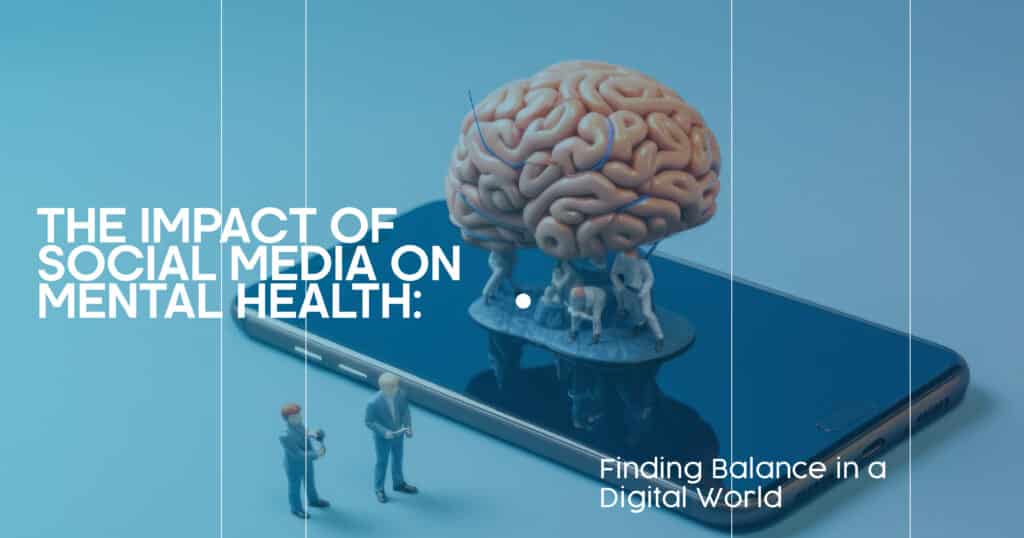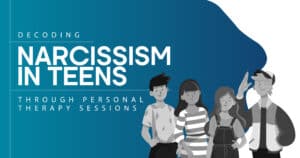Social media has woven itself into the fabric of our daily lives. These platforms offer many opportunities, from staying connected with loved ones to discovering new passions. But beneath the veneer of connection lies a potential for adverse consequences, particularly on our mental well-being. Understanding the impact of social media on mental health and cultivating a balanced approach is crucial in today’s digital age.
Unpacking the Positives: How Social Media Can Uplift Us
Social media isn’t all doom and gloom. Let’s explore some of the ways it can positively impact our mental health:
- Social Connection and Community: Social media bridges geographical divides, allowing us to stay connected with friends and family, especially those far away. It fosters a sense of belonging by connecting us with communities built around shared interests, hobbies, or experiences. Feeling part of a supportive online group can combat loneliness and isolation.
- Enhanced Self-Esteem: Positive reinforcement on social media, through likes, comments, and shares, can provide a valuable boost to self-esteem. Sharing our achievements and experiences can be validating, fostering a sense of accomplishment and self-worth.
- Information and Support Groups: Social media platforms can be a rich source of information on mental health topics. Online support groups offer a safe space to connect with others facing similar challenges, fostering empathy and reducing feelings of isolation.
California Mental Health
The Shadow Side: How Social Media Can Take a Toll
While social media offers connection and support, it can also harm our mental well-being. Here are some critical areas of concern:
- The Comparison Trap: Social media feeds are often meticulously curated, showcasing the best moments of people’s lives. This constant bombardment of seemingly perfect vacations, relationships, and achievements can lead to feelings of inadequacy and low self-esteem. We get caught in the comparison trap, believing our own lives are lacking in comparison.
- Cyberbullying and Negativity: The anonymity of the online world can embolden negativity. Cyberbullying, hate speech, and exposure to toxic content can significantly impact mental health, leading to anxiety, depression, and even suicidal ideation.
- Fear of Missing Out (FOMO): The constant updates and carefully crafted feeds can fuel FOMO (Fear of Missing Out). Seeing others seemingly having more exciting experiences can lead to anxiety, feelings of isolation, and a sense that our own lives are less fulfilling.
- Social Media Addiction: The constant notifications, dopamine hits from likes and comments, and the fear of missing out can contribute to social media addiction. This excessive use can disrupt sleep patterns, neglect real-life relationships, and negatively impact productivity and overall well-being.
California Mental Health
Finding Balance in a Digital World: Tips for a Healthy Relationship with Social Media
The key to harnessing the positive aspects of social media while minimizing the negative impact lies in cultivating a balanced approach. Here are some tips to help you navigate the digital landscape:
- Practice Mindful Consumption: Be conscious of your time on social media and the content you consume. Set time limits for your social media use and avoid mindless scrolling.
- Curate Your Feed: Unfollow accounts that make you feel bad about yourself or those that constantly trigger FOMO. Instead, follow accounts that inspire you, motivate you, or provide positive and uplifting content.
- Prioritize Real-Life Connection: Don’t let social media replace genuine face-to-face interaction. Make time for activities and relationships in the real world. Disconnect from social media, spend quality time with loved ones, engage in hobbies, or explore new activities.
- Be Authentic on Social Media: Instead of projecting a perfect online persona, share your true self. Celebrate your imperfections and focus on fostering genuine connections. Let your online presence reflect your life, promoting a more realistic and relatable image.
- Take Social Media Breaks: Schedule regular breaks from social media throughout the day. Disconnect before bed to ensure a good night’s sleep and avoid late-night scrolling that can disrupt your sleep cycle.
- Seek Professional Help if Needed: If you find yourself struggling with social media addiction, anxiety, or depression related to social media use, don’t hesitate to seek professional help. A therapist can provide valuable tools and strategies to manage your mental health and develop a healthy relationship with social media.
Beyond the Tips: Building a Sustainable Approach
Here are some additional considerations to go beyond the basic tips and create a genuinely sustainable approach to social media use:
- Identify Your Triggers: Recognize what kind of content or situations trigger negative emotions on social media. Is it the constant updates from a particular acquaintance? Or the pervasive use of photo filters creates unrealistic beauty standards. Once you identify your triggers, you can proactively avoid them or mute/unfollow the sources.
- Focus on Quality Over Quantity: It’s not about the number of followers or likes you have, but the quality of the connections you build. Engage meaningfully with the content you consume, participate in discussions with people who share your interests, and build genuine online relationships.
- Embrace the Power of “Off”: Don’t be afraid to disconnect from social media for designated periods. Schedule “digital detox” days or weeks to reconnect with yourself and the world around you.
- Promote Digital Wellness Conversations: Openly discuss your experiences with social media and its impact on mental health with friends and family. Encourage open discussions and share strategies for healthy social media use.
California Mental Health
Conclusion: Finding Your Social Harmony
Social media is a powerful tool that can be used for good or bad. By understanding its impact on mental health and adopting a balanced approach, you can harness its positive potential while minimizing its harmful effects. Remember, social media should enhance your life, not detract from it. Prioritize real-world connections, curate your online experience, and don’t be afraid to disconnect when needed. By finding your digital harmony, you can ensure that social media serves you, not vice versa.







